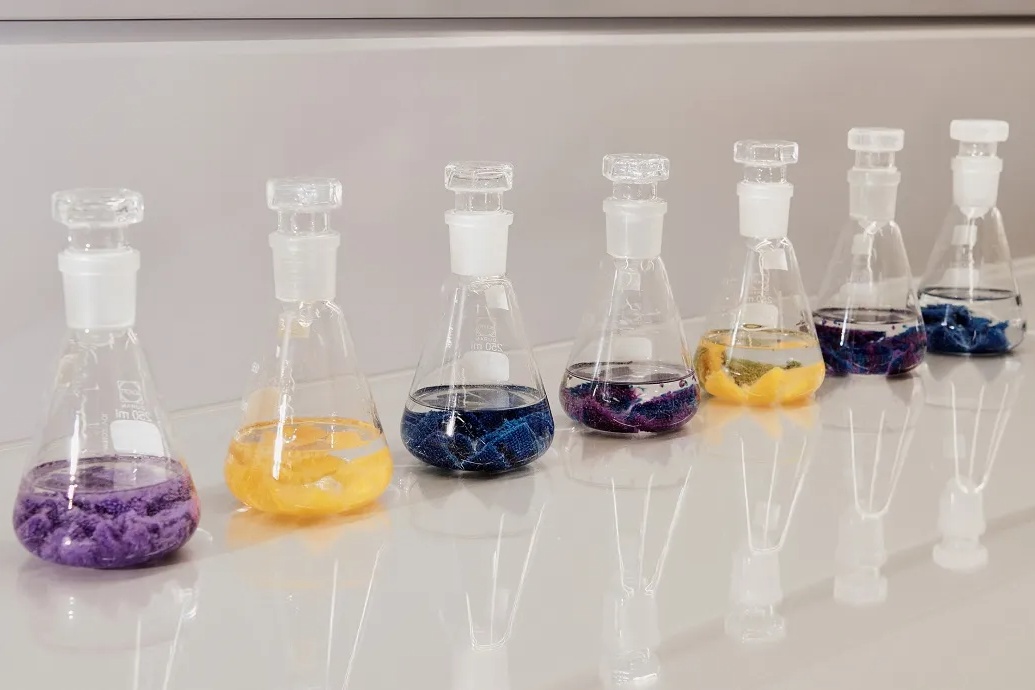
OEKO-TEX releases new certification regulations
YarnsandFibers News Bureau 2023-01-10 17:32:52 – SwitzerlandSwitzerland-based OEKO-TEX Association is once again publishing updates to the applicable test criteria limit values, and guidelines for its certifications, in order to increase its reputation within the textile and leather sector and in the eyes of its customers. After a transition period, the new regulations went into effect in the first quarter (Q1) of 2023.
According to a press release by OEKO-TEX, other introductions include the integration of the BHive app from GoBlu into STeP, which will allow certified industrial businesses to evaluate sustainability criteria and chemical management in international supply chains.
Beginning in April 2023, the new OEKO-TEX Organic Cotton certification will confirm accurate labeling of textiles made of organic cotton. Additionally, for the Standard 100, Leather Standard, and Eco Passport certifications, OEKO-TEX has declared a general restriction on the use of perfluorinated and polyfluorinated alkyl compounds (PFAS/PFC) in textiles, leather, and footwear. Further modifications to the OEKO-TEX Eco Passport accreditation will make the previously optional self-assessment required starting in April 2023 for all production facilities.
The OEKO-TEX Association places a high priority on collaboration and communication with subject matter experts in the leather and textile industries. With the help of the sustainability accelerator GoBlu International Ltd., a significant partnership was established. With the help of the GoBlu-created BHive app, producers can use smartphones to gather data on all chemical items used on-site and identify whether products satisfy various brands' and retailers' sustainability standards.
Chemical inventories automatically record all data so that brands have easy access to accurate and transparent information. Customers of OEKO-TEX STeP will be able to use this extensive chemical database beginning in April 2023 to save money, time, and labor. Additionally, the intelligent system coordinates compliance with accepted industry norms like the STeP and ZDHC MRSLs.
Beginning in April 2023, the new OEKO-TEX Organic Cotton certification will put an emphasis on the accurate labeling of textiles made from organic cotton.
Georg Dieners, secretary general of OEKO-TEX, said that more and more consumers want sustainable fabrics, and demand for organic cotton is expanding quickly." How trustworthy is their labeling, though?
A second phase comprises quantification—calculating the percentage of genetically modified cotton in a cotton product—in addition to the qualitative DNA analysis of the sample material (i.e., Does a product contain genetically modified cotton, yes or no?). The goal is to make raw materials traceable throughout the supply chain in addition to monitoring production.
Dieners added that what is novel is that they will begin examining cotton for genetically modified organisms at the beginning of the supply chain, during the ginning process, when the cotton fibers are separated from the seed. The flow of commodities can then be followed through all phases.
In order to receive an OEKO-TEX Eco Passport certification, a CAS number screening and laboratory examination are required. Both the self-evaluation and the customer site visit were optional. The self-assessment will become required for all clients' production locations starting in April 2023, but the on-site visit will continue to be optional until further notice. A proper self-assessment is required to be submitted with every certification that is given out after April 1, 2023. Existing customers may experience a changeover period.
For the Standard 100, Leather Standard, and Eco Passport certifications, OEKO-TEX has declared a general restriction on the use of perfluorinated and polyfluorinated alkyl substances (PFAS/PFC) in textiles, leather, and footwear. This is in accordance with the revised Conformance Guidance 2.0 and the ZDHC Manufacturing Restricted Substances List (ZDHC MRSL) version 3.0. To enable a smooth transition for all users, Eco Passport will be in compliance with these regulations by February 2023.
Standard 100, Leather Standard, and Eco Passport certificates now include more pesticides, as the previously under observation chlorothalonil in Annex 4 and 6. Additionally, three compounds that may have detrimental impacts on both human health and the environment have been classed as Substances of Very High Concern (SVHC). According to the statement, strict regulations for these pollutants often result in less exposure for consumers, employees, and the environment.
On the basis of the most recent scientific developments and compliance with pertinent criteria, OEKO-TEX will continue to monitor a variety of compounds in 2023. The chemical substance N-ethyl-2-pyrrolidone and the antioxidant drometrizole are the main topics here.
On the website of the business, the new regulations for 2023 are explained in detail for OEKO-TEX items. Additionally, on January 16, 2023, a webinar with comprehensive material will be open to all interested parties.
Market Intelligence
Ask for free sample Report

experience
Customer Base
dedicated team
Countries Served Worldwide









